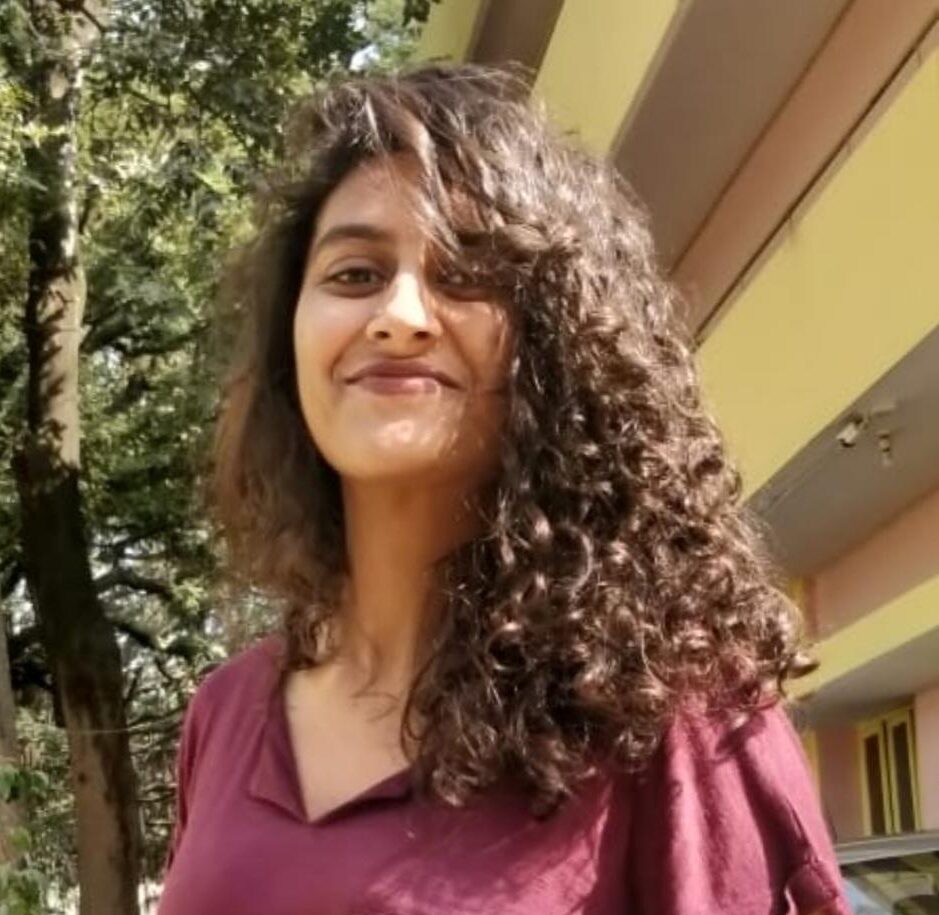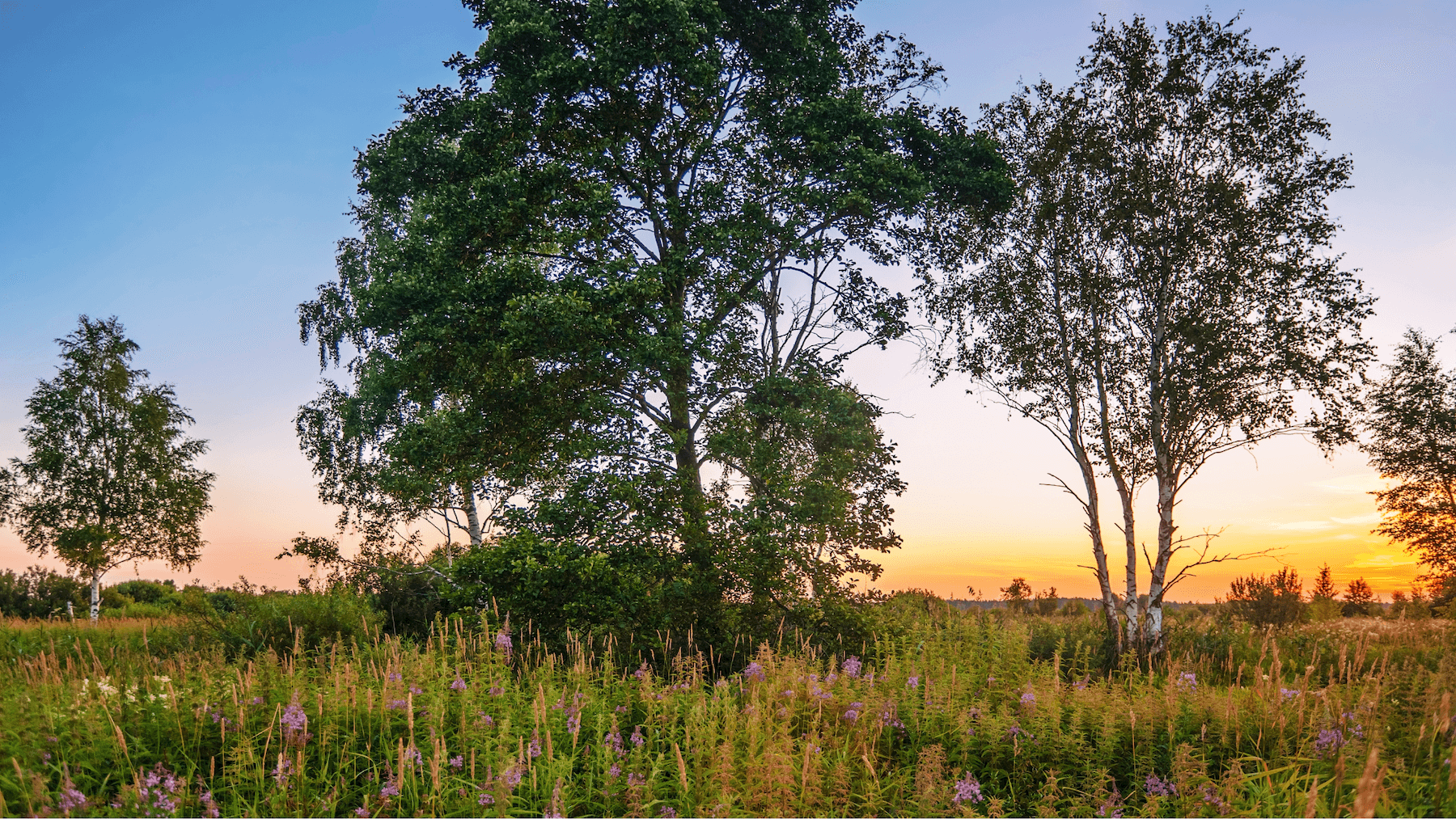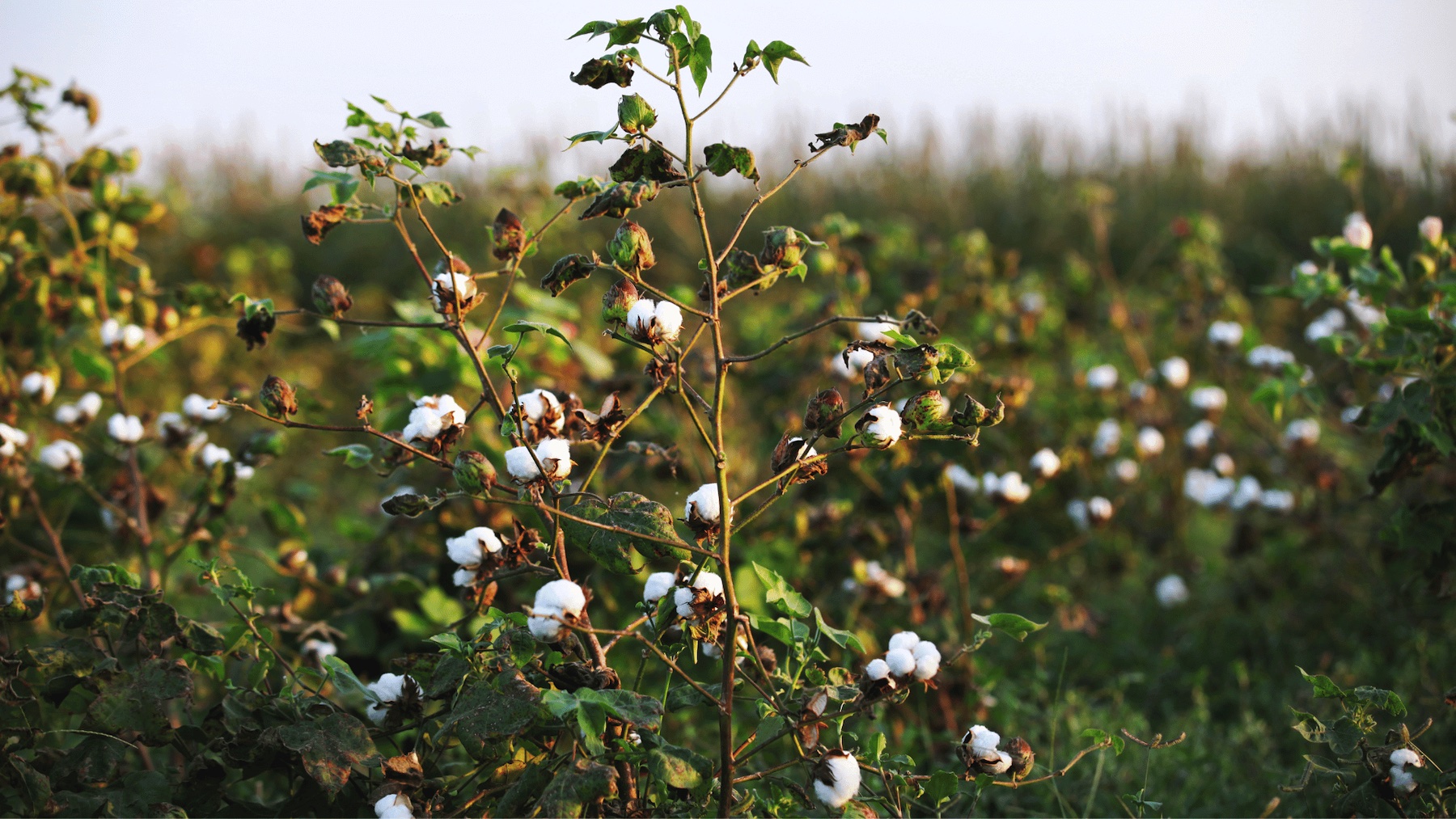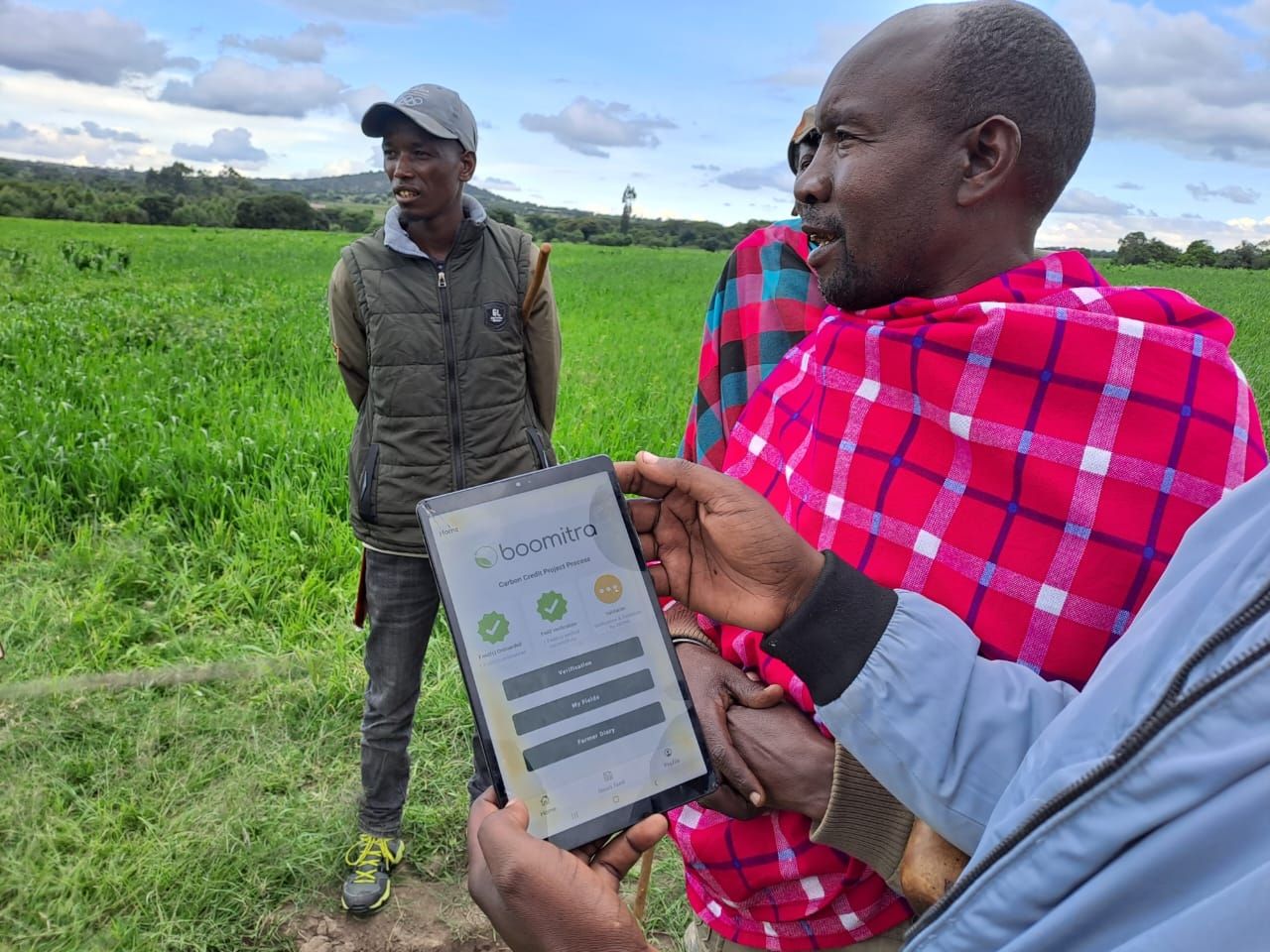desplazamiento
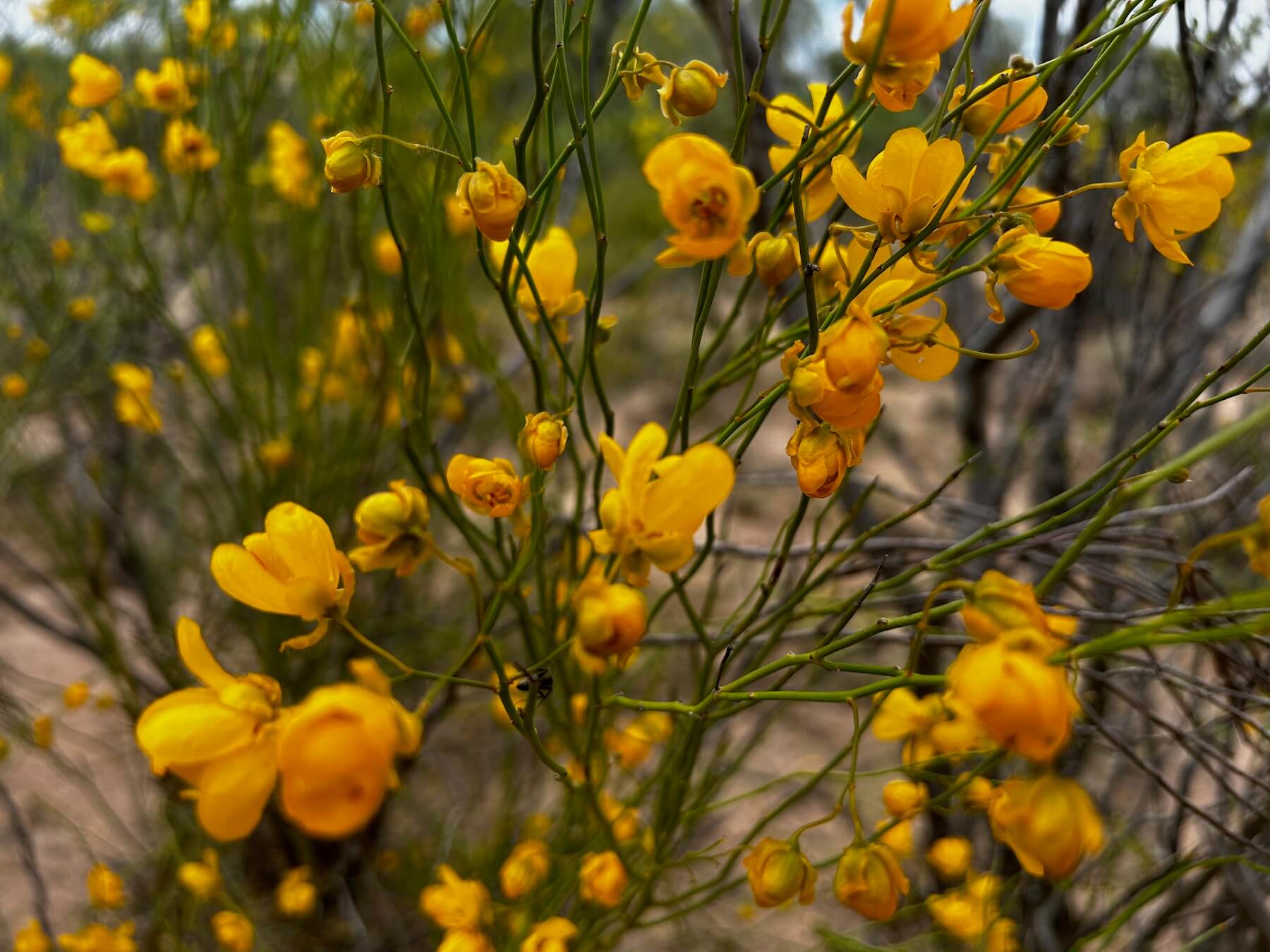
Women make up approximately 43% of the global agricultural labour force. These women farmers face many challenges, including lack of access to agricultural inputs, extension services, and credit. These are essential resources. Without them, farmers are less productive and less able to improve their techniques.
Boomitra’s carbon farming program empowers women farmers with equitable access to resources and carbon finance. Our ecosystem enables them to adopt and sustain better agricultural practices.
On this International Women’s Day, Boomitra shines a spotlight on the remarkable efforts of three of our women farmers and ranchers who are, as one farmer put it, “going beyond the known.” Through adopting new regenerative practices and improving their soil health, these women are nurturing crops and livestock y entire communities and ecosystems. With their resilience, innovation, and dedication, these farmers are driving social progress and environmental stewardship around the world.
Location: Uasin Gishu County, Kenya
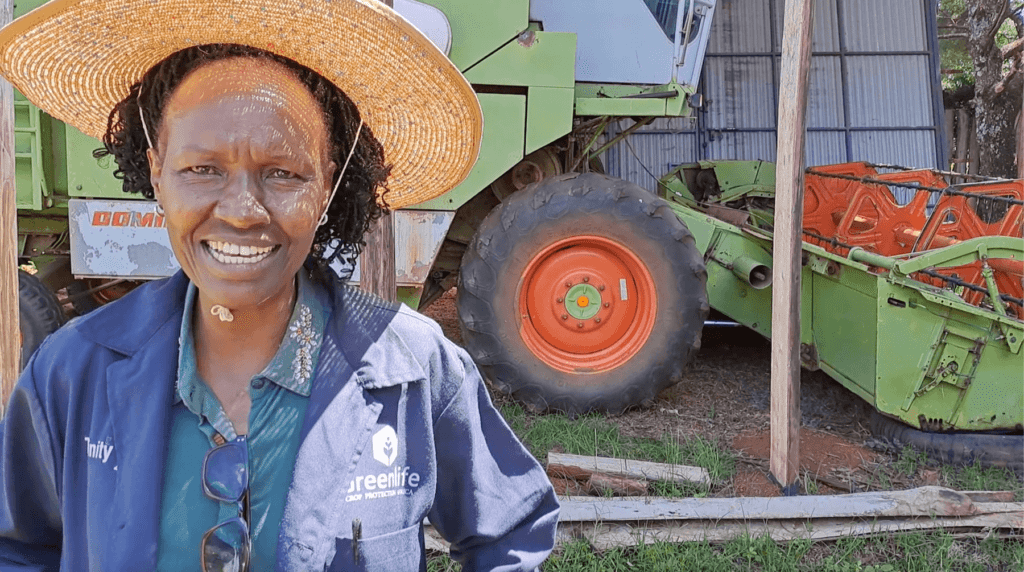
Twenty-three years ago, Florence John Koros resigned from her bank job and became a full-time farmer. “I realized that farming has an immense impact – it is personally satisfying, but also has a far-reaching impact on the community. It can help curb food insecurity, which is currently a highly prevalent problem in our country,” Florence says.
In Kenya’s Uasin Gishu county, Florence owns a 300-acre farm where she grows maize, wheat, and boma rhodes which are plant fodder for her livestock. Her farm was positively influenced by the training and knowledge-sharing sessions received from Boomitra’s partner organization, helping expand the farm’s livestock capacity and reduce fertilizer usage.
Florence reports that her crop yields have drastically improved. Earlier maize harvests yielded less than 20 bags, but now Florence fills more than 40 bags per acre. Her wheat yields more than doubled. Since she stopped burning residual crop stalks, Florence’s soil moisture retention improved. She also embraced minimum tillage and crop rotation, leading to increased carbon sequestration and healthier soils.
Florence is happy to be a part of Boomitra’s ecosystem. “I liked the idea of the program, and it has been a good journey. We get improved yields and have been empowered to change our lives for the better – it is a positive program!” Florence says.
Now her sons are carrying her legacy forward. “My sons chose to work alongside me, inspired mainly by the increase in yields, but also due to better profits and the overall community impact of farming,” she adds. “I would like to encourage more women and young people to join farming and do it in the proper manner,” Florence says. Her short-term goal is to get the highest possible yields by embracing conservation agriculture. “The long-term goal is to find ways to sustain it.”
Location: Uttarakhand, India
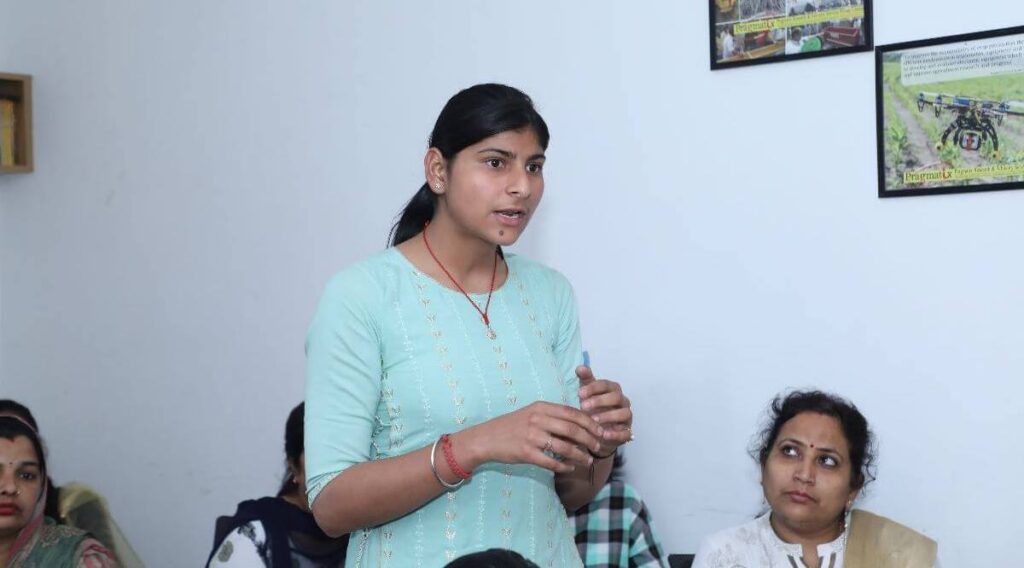
Like many of Boomitra’s farmers, Vertika Chowdhary and her family rely on farming for their income. For generations this family, which at present is a group of 23, has farmed for a living. Vertika’s favourite part of farming is the time she gets to spend with her family. On their farm in the Uttarakhand state of India, the Chowdharys cultivate sugarcane, wheat, and rice.
Originally, the family farmed conventionally. They frequently used pesticides, an additional expense which affected the food the family ate. They also burned crop waste, like stalks or husks.
Vertika was initially concerned about joining Boomitra’s program because she’d have to completely transition the way she farms. “I was skeptical about the switch because it didn’t seem possible for crops to grow and flourish without the use of pesticides or inorganic fertilizers,” Vertika recalls.
However, she joined the program in 2020. Today, Vertika composts household waste, cow dung from livestock, and vegetable scraps, and this natural fertilizer enriches her soil. Now that her fields are in a natural balance, Vertika doesn’t have to use or pay for pesticides. Her yield turnover and soil health have improved.
Vertika and her family now avoid burning crop waste. “Earlier when new crops were grown after burning previous crop residue, the yield turnover was low. However, after the avoidance and simultaneous adoption of improved practices, we now harvest more than 15 quintals of sugarcane crop over previous harvests,” Vertika says. Increased yields aren’t the only benefit: without stubble burning, there’s noticeably less pollution.
Vertika emphasizes the role our partner organization, Pragmatix, played in easing her transition from conventional to improved agriculture practices. Training sessions guide Vertika and a community of women farmers, who have formed “women farmer groups” that share knowledge.
These collectives have been instrumental in building community among the women farmers of the village. “We have developed a close friendship and help each other out on our individual farms. During the time of harvests, we come together to collect our yields,” Vertika says.
Location: San Luis, Argentina
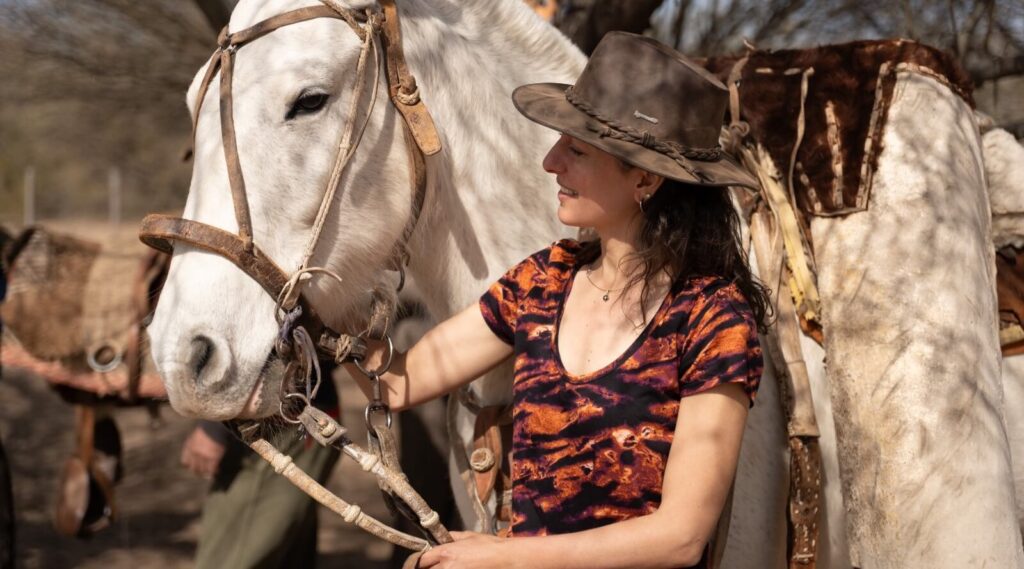
Daniela Pardo Méndez has managed her ranch La Siempre Viva in San Luis, Argentina, for 10 years. However, she’s been familiar with the terrain since she was born.
Over the years, Daniela watched the land desertify as the annual rains became increasingly erratic. “The region’s average annual rainfall is 300mm however it hasn’t touched 200mm in the last few years,” Daniela observes.
When Daniela first heard about Boomitra’s program through our partner Alianza del Pastizal, she was quick to say yes to being enrolled. “It seemed like a dream come true, that in some way, the world was finding ways to reward those who are dedicated to producing while preserving the environment,” Daniela says.
Because Daniela embraced regenerative practices like holistic planned grazing and an advanced irrigation system, her previously barren paddocks are sprouting with grass and flowers. Her soil health, animal welfare, and plant growth have improved. Daniela finds new grasses, flowers, and butterflies on her vast tracts of land, and she loves these profound changes. They showcase the transformative effects of her improved agricultural practices. “Red flowers in the desert were very, very shocking to me!” Daniela says.
Daniela credits the carbon farming program for motivating her to make positive changes on her ranch. She believes that these initiatives will encourage other ranchers and growers to switch from conventional to regenerative, even though the transition might be challenging for anyone accustomed to an existing system for many years. However, she advises taking this leap to create a better ecosystem. “I urge everyone to visit and see the changes, and to ultimately feel inspired to go beyond the known.”
Boomitra’s women farmers play a key role in building our inclusive ecosystem. We thank each of them for revolutionizing the agriculture space and cultivating to the benefit of their environment and our planet.
Más información about the projects these women are a part of.
